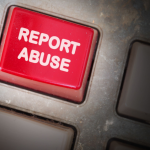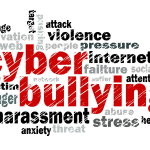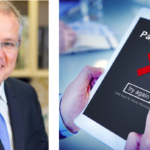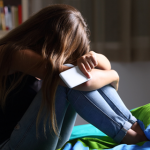Elite Sydney School Students Could Face Criminal Charges Over Offensive Group Chat
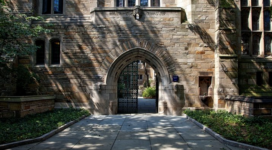
A group of students from Sydney’s elite Knox Grammar School are under investigation over allegations they shared videos depicting child abuse, rape and assault and engaged in misogynistic, racist and homophobic discussions in a closed online chat group.
Parents of students have been notified that specialist detectives from the NSW Police Force Child Abuse and Crimes Squad are investigating what has been described as “inappropriate images and… offensive commentary in an online private chatroom”.
Content leaked to media
It has been reported that the school had already finalised an internal investigation – suspending come of the students and expelling others – before the content was ‘leaked’ to the media and referred to police by a source other than the school thereafter.
It’s reported that the school conducted its own internal investigation and expelled several students before the messages were leaked to the media and referred to NSW Police.
Police say they are currently reviewing the material and working with the e-Safety Commission to have the offending content removed from the internet and determine whether the students should be criminally charged.
‘Racist, misogynistic and homophobic’ content
The student group, called ‘Gang Gang’, is reported to have been hosted on the end-to-end encrypted app Discord.
The school confirmed that some of the images were taken “during school activities” and later doctored, to produce offensive content.
The school further confirmed that some of the shared videos depicted child abuse, rape and physical assault.
The shared messages are alleged to include:
‘Hitler is always stay in my heart… Heil Hitler’,
‘Silly “pro choicers” think women’s rights matter… I only hate children and wish for them to die, take them out at the source’, and
‘I’m a maniacal potential pedophile who rapes babies for a living’.
One of the students is alleged to have expressed disappointment at not being invited to a ‘rape party’.
In a public statement, the school described the posts as “contrary to the values and culture of Knox”, adding that the conduct of the students does not “reflect a Knox education” – something that costs upwards of $30,000 a year.
Online Safety Act
Under the Online Safety Act (2021), offensive material comes under one of two categories, which are Class 1 and Class 2
Class 1 material includes materials that depict, express or otherwise deal with matters of sex, drug misuse or addiction, crime, cruelty, high-level gratituious violence or revolting or abhorrent phenomena in a way that is likely to cause offence.
Class 2 material typically includes material that is considered inappropriate for general audiences, material that may otherwise be restricted to persons over the age of 18.
Under the Act, which came into effect earlier this year, the e-Safety Commissioner has sweeping powers to ensure that platforms meet their reporting obligations and also remove content quickly when required.
If the material is not removed civil penalties can be imposed, including fines up to $111,000 for individuals and $555,000 for companies – the penalties apply to the person who posted the material and also the provider of the platform where it appeared.
The Act encompasses social media services, media sharing networks, discussion forums and consumer review discussion groups, including emails, instant messaging services, SMS and chat services.
It also applies to online games and online dating services, as well as websites, apps, social media, search engines, hosting services as well as internet service providers and other carriage services.
The online safety scheme relies heavily on members of the community reporting proscribed material to the e-Safety Commission and/or the Australian Federal Police-led Australian Centre to Counter Child Exploitation (ACCCE).
The e-Safety Commissioner has extensive powers to order internet hosts and service providers to remove offending material, and sanction individuals as well as companies that engage in proscribed conduct.
Potential criminal charges
It is yet to be determined whether the students will face criminal charges for their actions.
If the allegations are indeed true, they have the potential to amount to producing, possessing or disseminating child abuse material which is an offence under section 91H of the Crimes Act 1900 (NSW) that carries a maximum penalty of 10 years in prison.
To establish the offence, the prosecution must prove beyond reasonable doubt that:
- You possessed, disseminated or produced material, and
- The material was child abuse material
‘Possession’ includes physical custody or control of material or data.
‘Dissemination’ includes:
- sending, supplying, exhibiting, transmitting or communicating to another,
- making available for access by another, and
- entering an agreement or arrangement to do so.
‘Production’ includes:
- filming, photographing, printing or otherwise making,
- altering or manipulating, and
- entering an agreement or arrangement to do so.
‘Child abuse material’ is that which depicts or describes in a way that reasonable persons would regard as being offensive:
- The private parts of a person who is, or appears to be or is implied to be, a child, or
- A person who is, or appears to be or is implied to be, a child:
As a victim of torture, cruelty or physical abuse, or engaged in or apparently engaged in a sexual pose or sexual activity, or in the presence of another who is engaged in or apparently engaged in a sexual pose or sexual activity.
In determining whether material is offensive to a reasonable person, the following matters must be taken into account:
- the standards of morality, decency and propriety accepted by reasonable adults,
- the literary, artistic or educational merit (if any) of the material,
- the journalistic merit (if any) of the material, and
- the general character of the material.
‘Private parts’ is defined as ‘he genital or anal area, whether bare or covered by underwear, or the breasts of a female, or transgender or intersex person identifying as female whether or not the breasts are developed’.
For the purposes of the offence, a ‘child’ is a person under the age of 16 years.
Defences to the charge include where:
- You did not know, and could not reasonable have known, that you possessed, disseminated or produced it,
- Your conduct benefited the public through law enforcement or administration, or the administration of justice, and did not extend beyond it,
- The material received a classification for publication,
- The use of the material was approved by the Attorney-General for research, and
- The material depicts you and would not be child abuse material in the absence of your image,
An additional defence to possessing child abuse material is where you received it unsolicited and took reasonable steps to get rid of it upon becoming aware of its nature
An exception to the offence is where:
- The possession of the material occurred when you were under 18, and
- A reasonable person would consider the possession acceptable considering:
- The nature and content of the material
- The circumstances whereby you came to possess it
- The age, vulnerability and circumstances of the child depicted
- Your age, vulnerability and circumstances, and
- The relationship between you and the child depicted
Not the first time
It’s certainly not the first time Knox Grammar School’s reputation has been called into question.
In 2015, a report on Knox Grammar school, produced from the hearings of the Royal Commission into Institutional Responses to Child Sexual Abuse, which examined allegations of 30 years of alleged sexual abuse by eight teachers, concluded that the school covered up the abuse.
It determined that then headmaster Ian Paterson, “failed to prioritise the welfare of boys over the reputation of the school”.
And in 2021, a former student launched a civil suit against the school, alleging that he was left disabled after other students caused a locker to fall on him.
The young man alleges that the incident caused him to suffer a number of significant injuries, including brain haemorrhage, concussions and mild traumatic brain injury, as well as spinal damage, and eye injuries.
The former student also alleged that the school didn’t provide adequate first aid.




